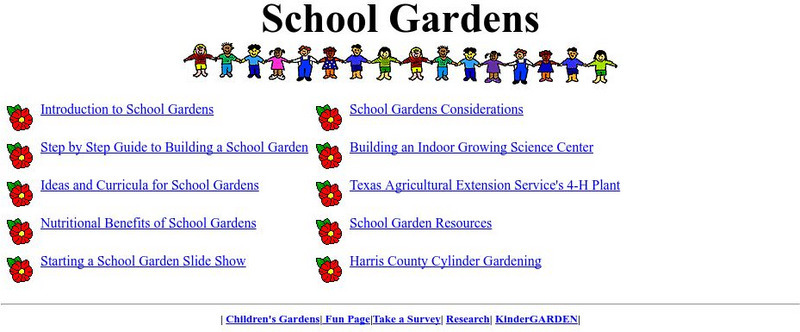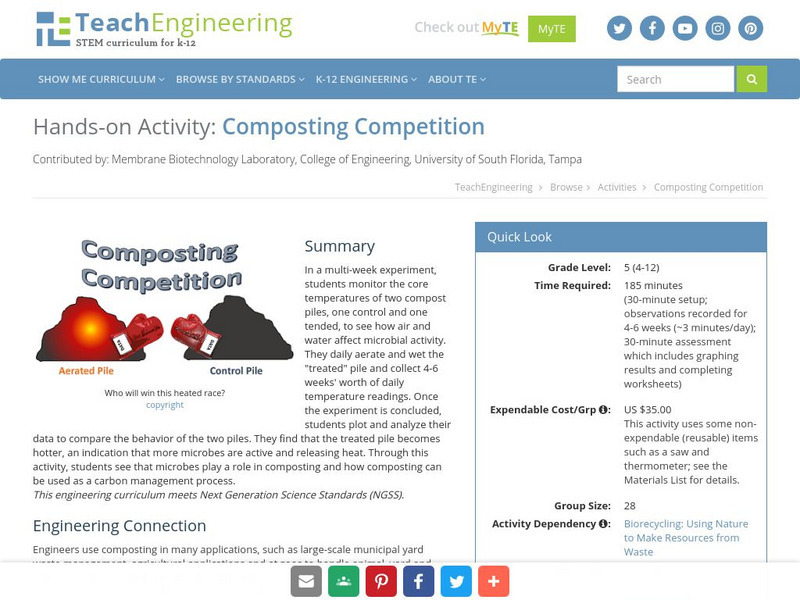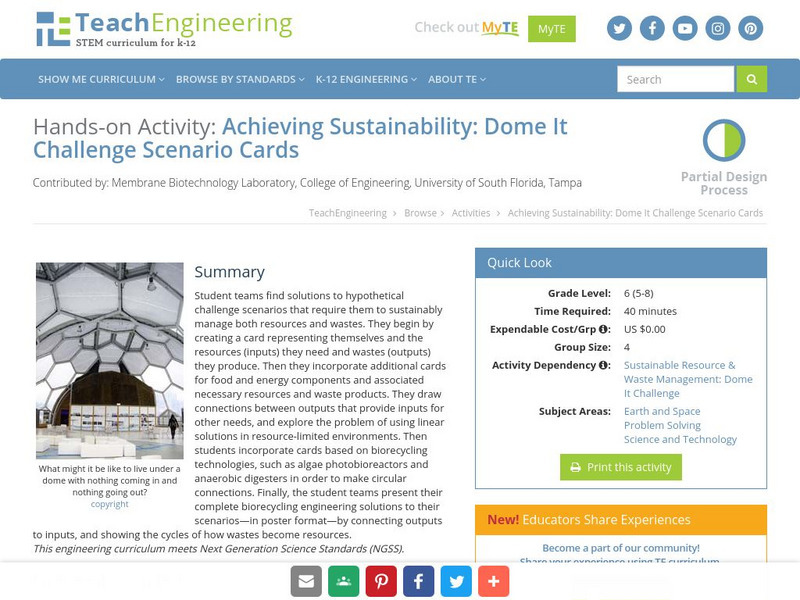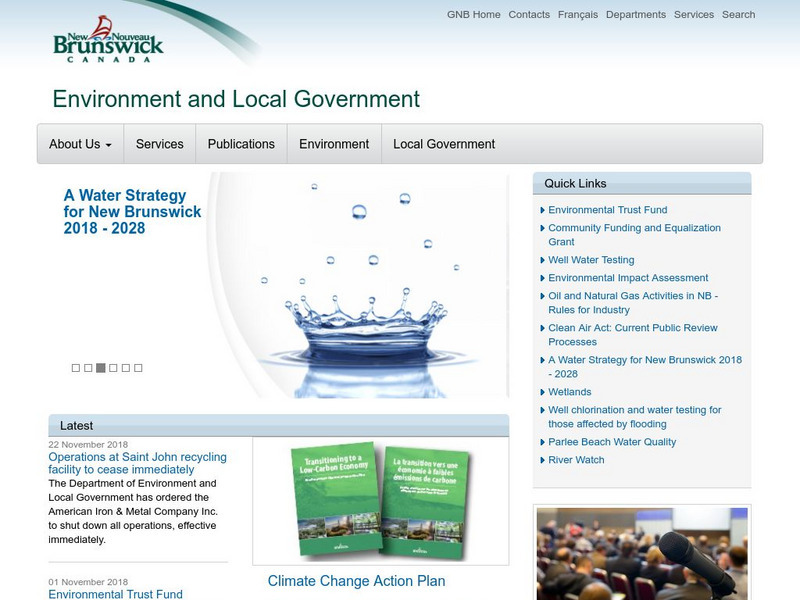Curated OER
All Wrapped Up
Pupils work in teams to identify and sort types of packaging used in food production. They consider ways to reduce the environmental impact of packaging and reflect how consumer choices play a role in trash production.
Curated OER
Where Shoult it Go?
Students label boxes and sort trash into those items that can be recycled, composted, incinerated or taken to the landfill.
Curated OER
The Principles Of Composting
Students put items in a plastic bag and watch the effects of composting. While completing the experiment, students answer questions and ask permission to start their own compost pile at home.
Curated OER
Decomposers at Work!
Students design and conduct investigations that illustrate the process of decomposition. After a lecture/demo, students simulate the process of soil composting in the classroom. They closely chart the decomposition of their soil.
Curated OER
Composting
Eighth graders collect data from Bottle Biology compost columns and record using Excel spreadsheet.
Curated OER
Worm Composting: Vermiculture
Pupils compost in a limited space and describe the decomposing process. Students convert unwanted, organic matter, particularly food scraps and paper into fertile soil.
Cornell University
Cornell University: Cornell Composting: The Science and Engineering Composting Composting
This clickable web page is like an outline that comprehensively covers the science of composting. Each link takes you to another section of notes.
Cornell University
Cornell University: Cornell Composting: Compost Quiz Game
Here are thirteen questions with complete explanations to see how much you know about composting.
Cornell University
Cornell University: Cornell Composting: Why Composting?
This article describes the advantages and opportunities that can be utilized by composting in schools. Biology, chemistry, and physics can all be explored with simple schoolyard composting.
Cornell University
Cornell University: Cornell Composting: Composting in Schools
Composting in schools, what's the value in it? Not only will it reduce your waste, it is a great science project. Try it out and learn how the earth "feeds" itself.
eSchool Today
E School Today: Your Cool Basics on Natural Resources
Looks at the two categories of natural resources, what they are used for, their distribution around the world, threats to natural resources, recycling and composting, and conservation.
PBS
Pbs: Independent Lens: Dirt! The Movie
'Dirt the Movie' is an independent film about the importance of soil, how it is affected by things like climate change and pollution, and how we can learn to take better care of it. The site features video clips from the film, articles...
Science Buddies
Science Buddies: Project Ideas: Decomposing Energy: Heat Energy From Compost
In this energy and power science fair project, the student will calculate the heat energy produced by an active compost pile, surrounding a tin can filled with water. The Science Buddies project ideas are set up consistently beginning...
Science Buddies
Science Buddies: The Big Dig
Even though many cities have recycling programs, a lot of trash still ends up in the dump. Find out which materials will break down and which materials won't. Will the results of this experiment change which products you often buy?
Texas Commission on Environmental Quality
Tceq: Lesson Plans & Resources for Teaching Environmental Sciences [Pdf]
A large collection of lesson plans on environmental topics. The lessons are broken up into the broad categories of air, water, and waste, and look at issues around quality, pollution, conservation, and recycling. There are activities for...
Other
Molecular Movies: 3 D Tutorials for Biologists
A collection of visualization-oriented tutorials for creating 3D animations for use in your biology classroom. Search by difficulty level, software package, or 3D topic area.
Texas A&M University
Aggie Horticulture: Kinder Garden: School Gardens
Get all the information needed to begin and maintain a school garden and a composting program. Features include step-by-step slide shows for creating a school garden or compost program.
Other
Institute for Local Self Reliance
The Institute for Local Self-Reliance is an organization that provides technical assistance to communities about local solutions for sustainable community development in areas such as banking, broadband, energy, and waste through local...
TeachEngineering
Teach Engineering: Composting Competition
In a multi-week experiment, students monitor the core temperatures of two compost piles, one control and one tended, to see how air and water affect microbial activity.
TeachEngineering
Teach Engineering: Dome It Challenge Scenario Cards
Student teams find solutions to hypothetical challenge scenarios that require them to sustainably manage both resources and wastes.
US Environmental Protection Agency
Epa: Land, Waste, and Cleanup Topics
This site is loaded with information on solid waste and hazardous waste. It includes industries' effects on the environment, waste programs, treatment, control, pollution prevention, recycling, and cleanup programs.
Other
Nrdc: Composting Is Way Easier Than You Think
The NRDC breaks down how to easily achieve at-home composting. Find out what can and cannot be composted.
Other
New Brunswick Waste Management /"Backyard Magic"
Comprehensive description of the environmental benefits of composting solid waste. Complete directions for composting, detailed description of composting chemistry, suggestions for applications of humus, question and answer page,...
TeachEngineering
Teach Engineering: Biorecycling: Using Nature to Make Resources From Waste
By studying key processes in the carbon cycle, such as photosynthesis, composting, and anaerobic digestion, students learn how nature and engineers biorecycle carbon.






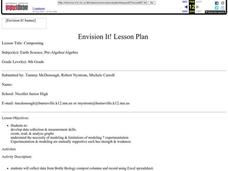


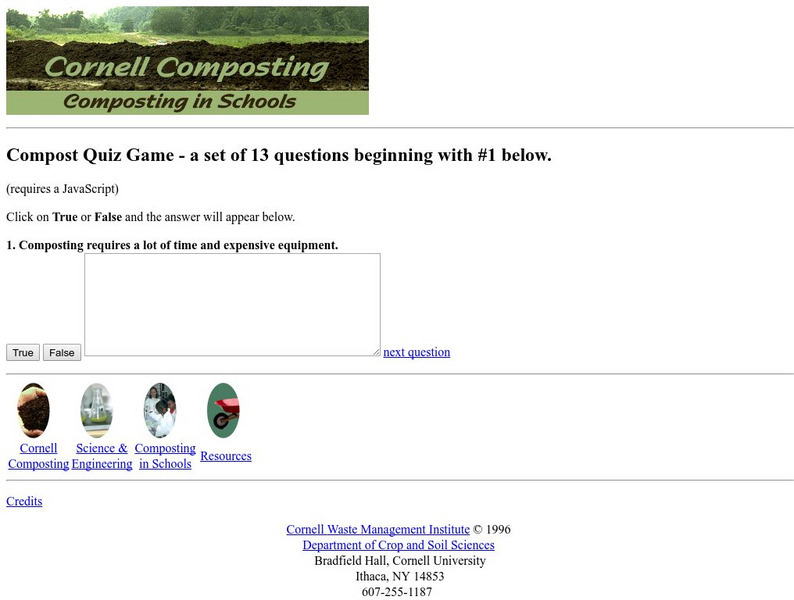




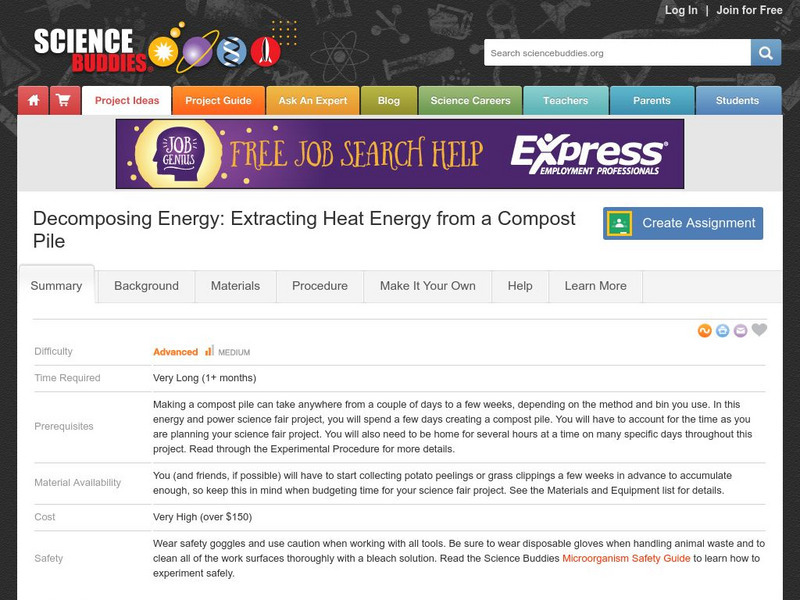

![Tceq: Lesson Plans & Resources for Teaching Environmental Sciences [Pdf] Lesson Plan Tceq: Lesson Plans & Resources for Teaching Environmental Sciences [Pdf] Lesson Plan](https://d15y2dacu3jp90.cloudfront.net/images/attachment_defaults/resource/large/FPO-knovation.png)

